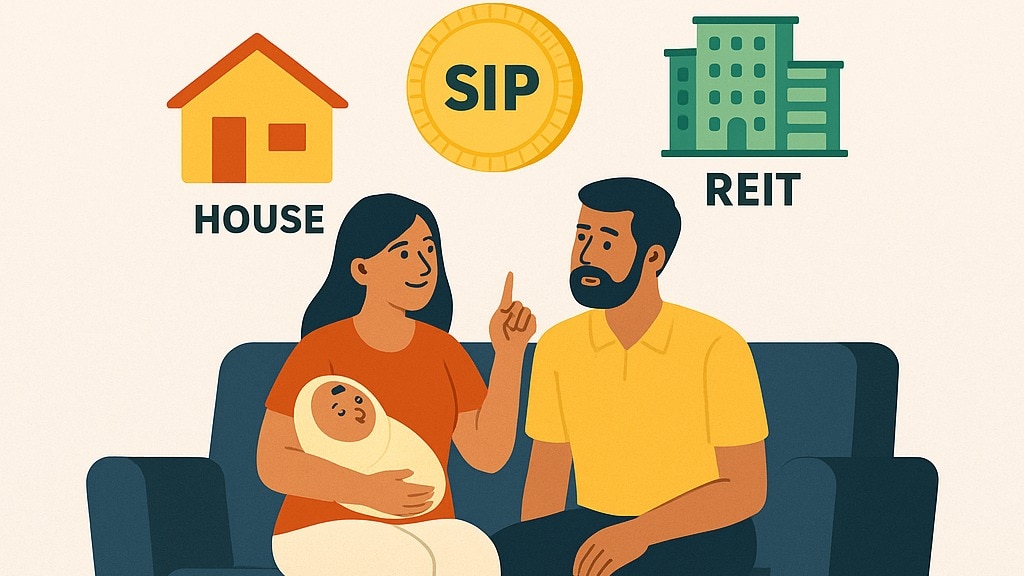I’m a 32-year-old working professional from Mumbai, married, and recently welcomed our first child. My wife and I both have stable 9-to-5 jobs, and our combined monthly take-home income is Rs 1.9 lakhs.
We bought a 1-BHK in 2019 for Rs 70 lakh (Rs 25 lakh down payment + Rs 40 lakh loan). The outstanding loan is just Rs 6 lakh now and should be fully repaid by October 2025.
With the EMI burden almost gone, I’m now planning how best to secure our family’s financial future—especially for our newborn’s long-term needs.
I’m considering two options:
Buy a second flat to generate rental income and build long-term equity
Allocate Rs 50,000 monthly: Rs 25,000 in equity mutual funds (SIP), Rs 25,000 in hybrid/ELSS/large-cap, and Rs 50,000 in a recurring deposit for short-term needs
Given our moderate income and long-term goals (child’s education, passive income, early retirement, etc.), I’d love to hear from those who’ve walked this path. What would you prioritize after closing your first big liability?
Appreciate any advice from the community—especially on balancing risk and returns at this life stage.
Advice by Akhil Rathi, Head – Financial Advisory at 1 Finance
Firstly, congratulations on becoming a parent! It’s great to see that you’re already thinking about long-term financial planning for your family. With your home loan nearly repaid and only Rs 6 lakh left, it may not be necessary to close it early, most of the interest has already been paid, and the remaining EMIs are largely principal. Instead, that amount can be better utilised in goal-based investments such as your child’s future needs, emergency funds, or wealth creation.
Considering investing in a second flat for rental income is a common idea, but it is important to evaluate it carefully. In a city like Mumbai, rental yields are usually low, averaging around 1–3% annually. When factoring in expenses such as society charges, maintenance, property tax, and periods of vacancy, the actual returns on investment may not be worth it. If your goal is to earn regular income from real estate, you may want to consider exploring REITs (Real Estate Investment Trusts) as an alternative. REITs are regulated, offer better liquidity, and provide exposure to property markets without the complications of direct ownership.
Your monthly investment plan of Rs 1 lakh is a strong step forward. Instead of a fixed split, try linking investments to specific goals. For example, SIPs in equity mutual funds are great for long-term goals like your child’s education or wealth accumulation. NPS offer tax benefits and are suitable for retirement. For short-term needs, instead of recurring deposits, consider liquid or short-term debt funds they offer better flexibility and slightly higher returns while keeping your capital relatively safe.
Finally, while early retirement is often discussed as an attractive goal, it’s important to plan for it realistically. For example, if you aim to retire at 45, you’ll still need to plan for at least another 40–45 years of living expenses, rising healthcare costs, children’s education, and
inflation, without a steady salary. Rather than setting a retirement age right now, it’s better to focus on wealth accumulation. That way, you’ll have the flexibility to make life choices without financial stress.
